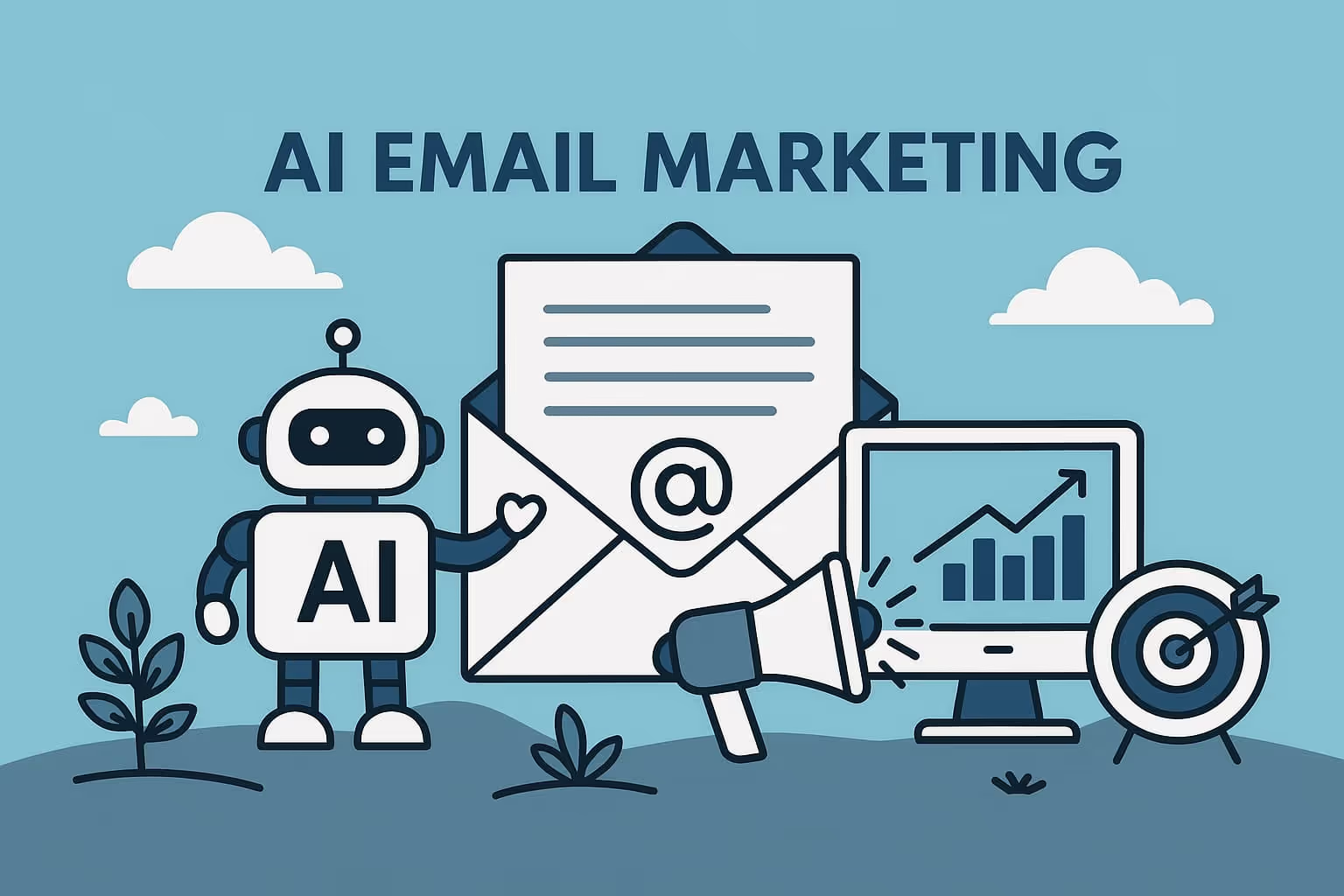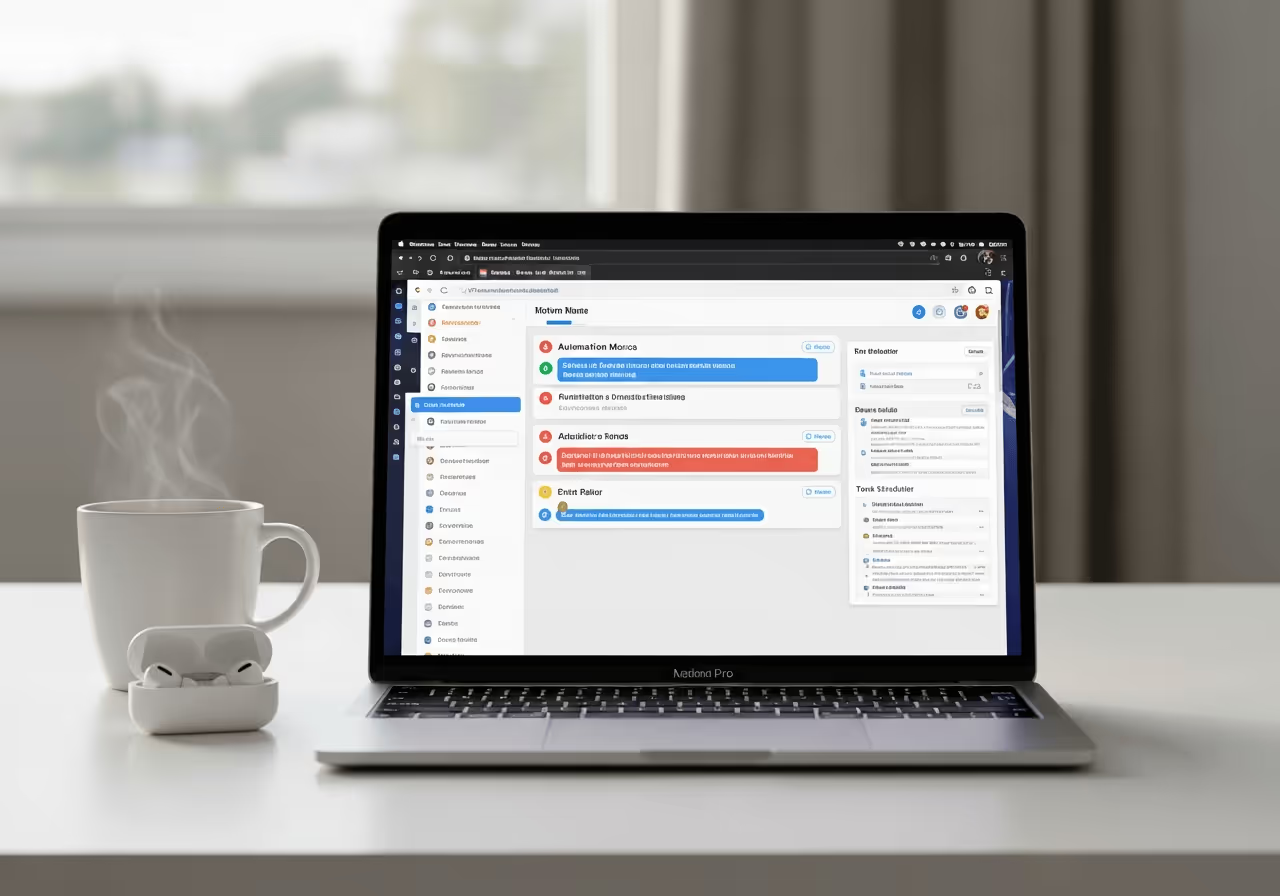AI in Email Marketing: Personalization That Works

November 25, 2025

In the fast-evolving digital marketing landscape, few tools have revolutionized the arena like artificial intelligence (AI). The integration of AI in email marketing has enhanced personalization, elevating communication strategies and improving conversion rates significantly. Let’s explore how AI has reshaped email marketing to deliver a more personalized experience that truly resonates with audiences and discover how this personalization is transforming email marketing campaigns.
Understanding AI-Powered Personalization
The Role of AI in Email Marketing
AI's integration into email marketing primarily centers around tailoring content to individual preferences. Unlike its traditional counterpart, AI-driven personalization uses algorithms and data analytics to assess user behavior patterns, purchase history, and even browsing tendencies. This wealth of information enables marketers to craft emails that align perfectly with the recipient's interests, thereby increasing engagement levels.
Data-Driven Personalization Strategies
Leveraging AI, marketers can refine their personalization strategies by segmenting audiences more accurately. AI processes large sets of data to identify user demographics, enabling the creation of content that appeals to specific segments. This segmentation helps in delivering targeted messages, thereby enhancing customer satisfaction and loyalty. Additionally, AI can automate the timing of email dispatch based on optimal user interaction times, ensuring messages are read promptly.
The Benefits of AI in Email Marketing
Improved Customer Engagement
With AI, customer engagement is not left to chance. Personalized subject lines, content, and call-to-actions make emails more appealing, leading to higher open rates and better interaction. The intelligent analysis performed by AI can predict user behavior, suggesting the kind of content that is likely to be appreciated by the recipient. This personal touch not only boosts engagement but also fosters a sense of connection with the brand.
Enhanced Conversion Rates
AI has proven instrumental in boosting conversion rates by making personalized recommendations. Whether suggesting complementary products or offering discounts tailored to past shopping habits, these strategies increase the likelihood of a purchase. Moreover, AI-driven retargeting campaigns remind customers of abandoned carts or previous interests, nudging them towards completing a transaction, thus directly impacting sales figures positively.
Challenges and Solutions
Overcoming Data Privacy Concerns
While AI enhances personalization, it also raises concerns about data privacy. However, adopting transparent data collection policies and secure data management practices can address these issues. Marketers need to ensure that users are informed about the data being collected and have consented to its use, thereby maintaining trust and compliance with regulations.
Navigating the Technological Complexity
Implementing AI in email marketing requires a certain level of technological expertise. However, businesses can mitigate this challenge by partnering with tech service providers or using uncomplicated AI tools designed for non-experts. Additionally, investing in relevant training can help teams become proficient in using these technologies effectively.
Avoiding Over-Personalization and Customer Fatigue
One emerging challenge is the risk of “creepiness” or overwhelming recipients when personalization feels too intrusive (e.g., referencing overly specific behaviors or sending too many highly tailored emails). This can lead to unsubscribes or spam complaints. The solution lies in finding the right balance: using preference centers where subscribers actively choose the type and frequency of emails they want, combining AI insights with human oversight to ensure recommendations feel helpful rather than invasive, and regularly monitoring engagement metrics to detect signs of fatigue early. A/B testing different personalization depths also helps identify the sweet spot that delights rather than alienates audiences.

FAQs on AI and Email Marketing
Q1: How does AI improve email marketing efficiency?
AI enhances efficiency by automating processes such as audience segmentation and content customization. This automation saves time and allows marketers to focus on strategic tasks rather than operational ones.
Q2: What role do predictive analytics play in AI-powered email marketing?
Predictive analytics in AI assess past user behaviors to forecast future actions. This allows for tailoring emails that pre-emptively match customer needs and preferences, leading to higher engagement.
Q3: Are AI-driven email marketing campaigns cost-effective?
Yes, while the initial investment might be higher, AI-driven campaigns are cost-effective in the long run as they boost conversion rates and reduce manual labor.
Q4: Can small businesses benefit from AI in email marketing?
Absolutely. Small businesses can use AI to achieve personalization at scale, facilitating better customer relationships without a proportional increase in effort or cost.
Q5: Where can I find the best email marketing tools?
For a curated list of tools designed to maximize email marketing efficiency, check out the available resources online that focus on the best solutions for your needs.
Conclusion
The intersection of AI and email marketing marks a new dawn in digital communication, offering personalized content at unprecedented levels. By automating tasks and using predictive analytics, it is now possible to craft emails that resonate with readers, ensuring higher engagement and conversion rates. Moreover, AI addresses some traditional marketing challenges, offering scalable solutions that enhance overall efficiency.
As businesses continue to explore this potential, maintaining a focus on data privacy and technological adaptability will be crucial. Integrating AI in email marketing is not merely about following trends but about leveraging advanced tools to create meaningful interactions. This path towards personalized email marketing is not just the future but the present reality for marketers globally.
Your Perfect SaaS Tool is Just a Click Away
Disclosure
you, but we only recommend SaaS tools we trust for small businesses.
























































































